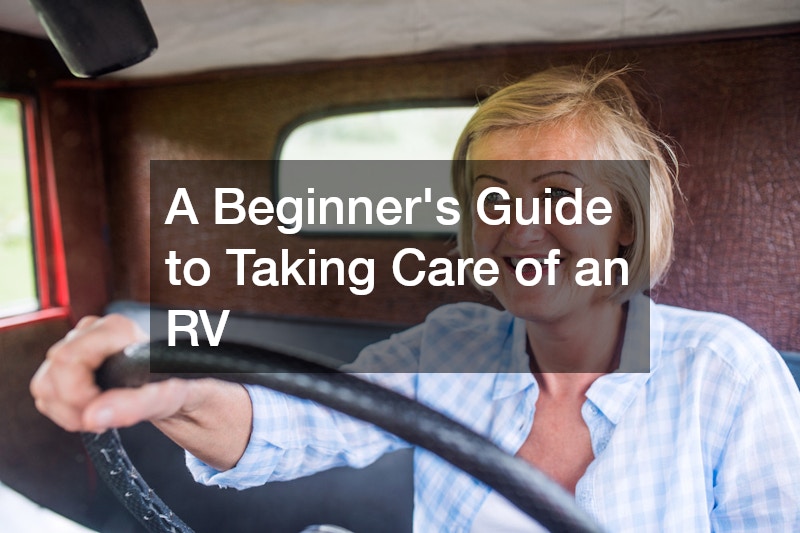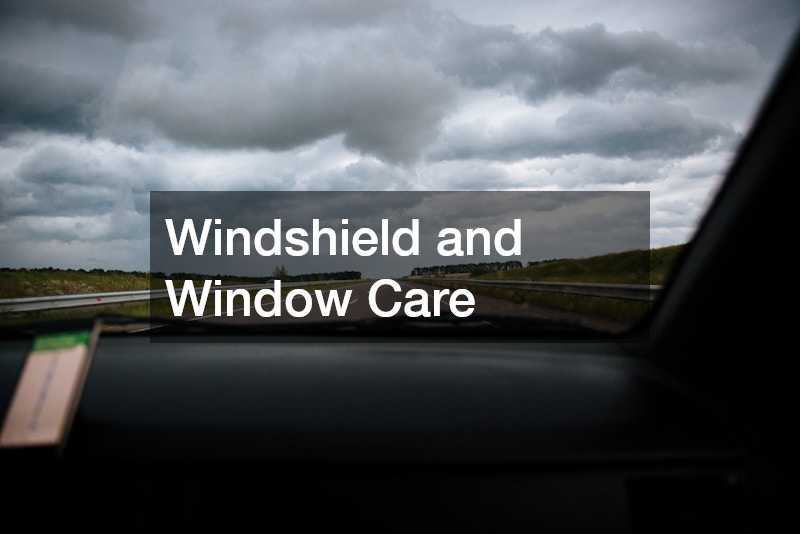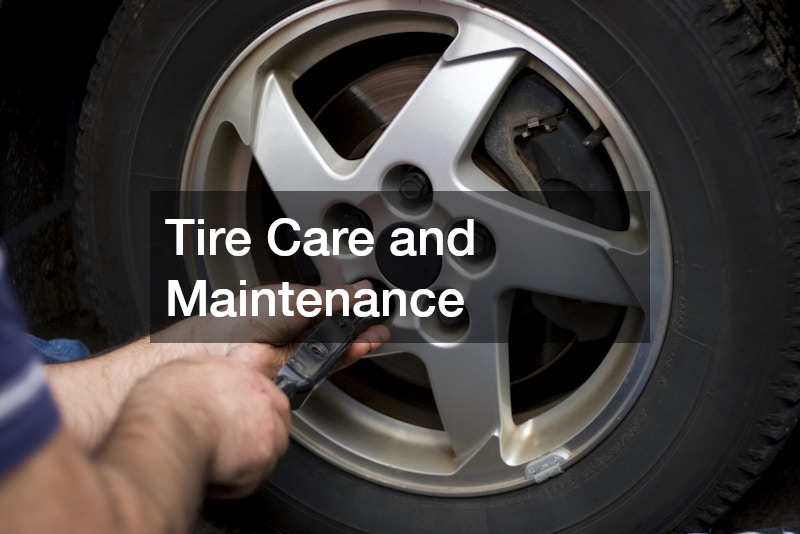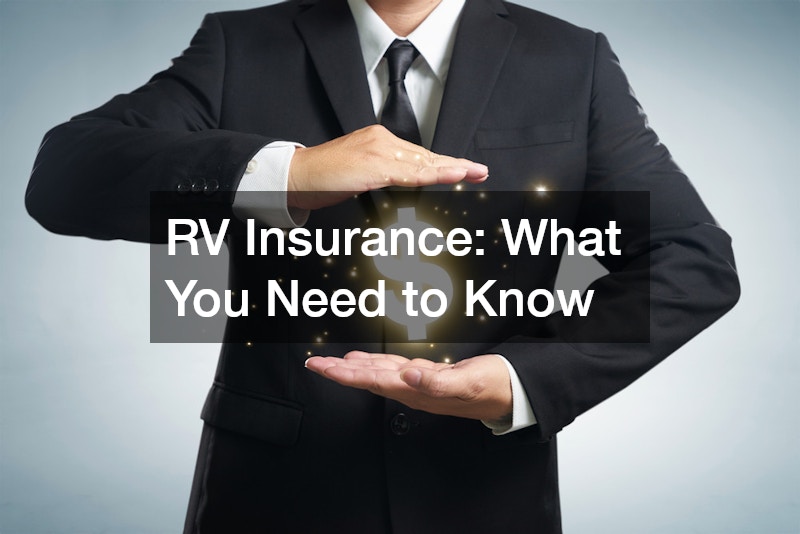

Owning an RV offers the freedom to explore new places while enjoying the comforts of home. However, to keep your RV running smoothly and in good condition, regular maintenance is key. This comprehensive guide will provide the essential steps every beginner RV owner needs to know to properly care for their vehicle and avoid costly repairs down the road.
Understanding the Basics of RV Maintenance
An RV is both a vehicle and a living space, so maintaining it requires more than just regular engine check-ups. You’ll need to ensure that both the mechanical and habitation aspects of the RV are functioning properly. By staying on top of maintenance, you’ll not only extend the life of your RV but also ensure that your road trips are safe and enjoyable.
1. Routine RV Engine Maintenance
Your RV’s engine is the most critical part of the vehicle, and it needs regular maintenance to stay in top condition. Since RVs typically cover long distances, engine maintenance is even more important than with smaller cars.
One of the simplest, yet most essential, tasks is performing an oil change. Regular oil changes will keep your engine running smoothly and prevent long-term wear and tear. Follow your RV manufacturer’s guidelines on how frequently you should change the oil. Typically, an oil change is recommended every 3,000 to 5,000 miles, but if you’re towing or driving in extreme conditions, you may need to change the oil more often.
In addition to oil changes, it’s essential to monitor the engine’s other fluids, including transmission and coolant fluids. Keeping these at optimal levels will prevent overheating or transmission damage.
2. Windshield and Window Care

Your RV’s windshield is a vital component for visibility and overall safety, but it’s also more vulnerable to chips and cracks due to its large size. If you spot any damage, you’ll want to address it quickly to avoid the need for a full RV windshield replacement. Small chips can often be repaired before they turn into large cracks that compromise the windshield’s integrity.
Along with the windshield, check your RV’s windows regularly. Over time, seals can wear out, leading to leaks that can cause water damage to your interior. Keeping the windows and their seals in good condition helps maintain comfort inside the RV and prevents expensive water damage repairs.
3. Exterior Protection and Care
The exterior of your RV is constantly exposed to the elements, which can lead to fading paint, rust, and deterioration over time. To protect your RV’s surface, apply an automotive coating that provides a protective layer, preventing fading and minor scratches.
A regular washing and waxing routine will also go a long way in preserving the exterior. If your RV is stored outside in harsh weather, consider using a high-quality RV cover to shield it from the sun, rain, and snow.
4. Tire Care and Maintenance

Tires are one of the most critical components of your RV, and they require special attention. Before any trip, it’s essential to check the tire pressure and ensure that all tires are properly inflated. Under-inflated tires can lead to poor fuel efficiency, blowouts, or loss of control.
If you notice any signs of wear, such as uneven tread or cracks, you may need to schedule tire repair or replacement. Additionally, rotating your RV’s tires on a regular basis will help them wear more evenly, prolonging their life.
Always travel with a spare tire and the necessary tools to change a tire, especially on longer trips. In the event of a flat, having a backup will ensure you can get back on the road quickly.
5. Handling Body Repairs and Dents
It’s not uncommon for your RV to pick up dents and scratches along the way, especially if you travel frequently. For minor dents, paintless dent repairs are a quick and affordable solution. This method doesn’t require repainting and is ideal for smaller dings that haven’t damaged the paint.
For more serious exterior damage, you’ll need to find an auto body repair shop that specializes in RVs. This is crucial, as RVs are significantly larger and more complex than standard vehicles. Prompt repairs will not only keep your RV looking good but also protect it from rust and further structural damage.
6. Transmission and Brake Maintenance
Due to the size and weight of an RV, the transmission and brakes endure far more stress than they would in a regular vehicle. Ensuring that these components are in good working order is critical for your safety on the road.
- Brakes: Regularly check the brake pads and fluid levels. If you hear squealing, grinding, or notice a longer stopping distance, it’s time to replace your brake pads. Maintaining healthy brakes is non-negotiable when it comes to RV safety, particularly when traveling downhill or in mountainous regions.
- Transmission: Whether your RV has a new or used transmission, it’s important to have it checked and maintained by a professional mechanic. Signs of transmission trouble include difficulty shifting gears, strange noises, or leaking fluid. Addressing transmission issues early can prevent a complete breakdown, saving you time and money.
7. RV Insurance: What You Need to Know

Protecting your RV with the right insurance policy is crucial. While standard auto insurance may cover some aspects of your RV, you’ll likely need specialized coverage. Talk to local auto insurance providers about RV-specific policies that cover not only accidents but also damage to the RV itself and the belongings inside it.
Consider whether you need comprehensive coverage that includes incidents like theft, vandalism, or weather-related damage. If you live in your RV full-time, additional coverage may be required for personal belongings and liability. Regularly review your policy to ensure it meets your needs and that you’re fully protected in any situation.
8. Auto Collision Repairs
Accidents can happen even with the most careful driving. If your RV is involved in a collision, you’ll need to find a shop that specializes in auto collision repairs for RVs. The size and complexity of RVs require specialized knowledge and equipment that not all auto body shops possess.
After a collision, even if the damage appears minor, it’s crucial to have a full inspection performed. Structural issues may not be immediately visible but could compromise your RV’s safety and integrity. Prompt repairs will prevent further damage from developing, such as rust or water infiltration.
9. Electrical Systems
Your RV’s electrical system powers both the vehicle and the living space, and both systems require regular inspection. Make sure your batteries are in good condition and replace them when they begin to lose their charge. It’s also important to check your RV’s generator (if equipped) to ensure it’s functioning properly. The generator powers many of the essential systems when you’re camping without an electrical hookup.
Regularly check the wiring for any signs of wear or damage. Faulty wiring can lead to system failures, which can cause serious problems on the road. Address electrical issues immediately to avoid potential safety hazards.
10. Interior Upkeep
Maintaining the interior of your RV is just as important as taking care of the mechanical aspects. A well-kept interior will keep you comfortable on the road and help preserve the value of your RV.
- Plumbing: RVs have plumbing systems that can suffer from leaks or blockages if not properly maintained. Regularly inspect your pipes, drains, and water tanks for signs of damage or leaks. Make sure to sanitize your water system regularly, especially if you don’t use your RV year-round.
- Appliances: Test your appliances before each trip to ensure they’re in working order. This includes your refrigerator, stove, microwave, and HVAC systems. If any appliances are malfunctioning, it’s best to repair or replace them before heading out on a trip.
- Furniture and Flooring: Regularly inspect your RV’s furniture and flooring for wear and tear. Repair any loose fixtures or damaged upholstery to keep your interior looking and functioning well.
11. Long-Term Storage Tips
If you don’t plan to use your RV during the colder months or for an extended period, preparing it for storage is essential to prevent damage.
- Winterizing: Drain your water tanks and pipes to prevent freezing, which can cause pipes to burst. Add antifreeze to the plumbing system to protect against freezing temperatures.
- Battery Care: Disconnect the batteries and store them in a warm, dry place to prevent them from losing charge during the off-season.
- Covering Your RV: Use an RV cover to protect it from the elements. Sun exposure, rain, and snow can all damage the exterior if the RV is left uncovered for long periods.
Taking these steps will ensure that your RV is in good condition when you’re ready to hit the road again.
12. Used Parts: A Cost-Effective Solution
RV repairs can be expensive, but one way to save money is by considering used transmissions or other used parts. Used parts, when sourced from reputable suppliers, can offer a more affordable alternative to buying new ones.
Whether it’s a transmission, tires, or an appliance inside your RV, using pre-owned parts can extend the life of your vehicle without breaking the bank. Just be sure to have a trusted mechanic inspect any used parts before installation to ensure they’re in good working condition.
13. Preventative Maintenance
The best way to keep your RV in great shape is through regular inspections and preventative maintenance. Routine check-ups on your engine, brakes, tires, and electrical systems will help catch potential issues before they become serious problems.
By following a regular maintenance schedule, you can avoid the stress and expense of breakdowns and major repairs while on the road. Many RV owners also keep a log of maintenance tasks and service dates to help stay organized and ensure no routine tasks are overlooked.
Owning an RV requires a bit more attention than a typical vehicle, but with regular maintenance, your RV will continue to provide years of enjoyment. From keeping up with oil changes to performing auto body repair when necessary, maintaining your RV ensures not only a smooth ride but also protects your investment.
What Experienced RV Owners Should Know About Maintaining an Old RV and Buying a New One
For experienced RV owners, the challenges of maintaining an older RV are often more complex than those faced by first-time owners. Older RVs, while often reliable, require more attention to prevent larger, costlier problems. At the same time, deciding when to upgrade to a new RV involves careful consideration of your budget, lifestyle, and the long-term costs of keeping your current RV running.
Maintaining an Older RV
As your RV ages, regular maintenance becomes even more critical. Here are some key areas to focus on:
- Engine and Transmission Health: As your RV racks up miles, the engine and transmission naturally experience wear and tear. If your RV has used transmissions or if it’s showing signs of strain, like difficulty shifting gears or reduced power, consider having it inspected more frequently. Older transmissions may require more regular servicing or even a rebuild to keep your RV running smoothly.
- Brakes and Suspension: Older RVs may develop braking and suspension issues due to the heavy load they carry over time. Pay extra attention to the brakes, especially if you notice reduced responsiveness or noise when braking. The suspension system should also be checked regularly for signs of wear, such as uneven tire wear or a rougher ride.
- Exterior and Roof Maintenance: The roof and exterior of an older RV are more susceptible to leaks and rust. Perform thorough inspections for any signs of water intrusion or damage. Sealing any cracks in the roof and applying an automotive coating to protect the exterior from rust can extend the life of your RV. Regularly inspecting and maintaining the paintless dent repairs on your RV will help preserve its appearance.
Deciding When to Buy a New RV

At some point, it may become more cost-effective to invest in a new RV rather than continually repairing an old one. Here are a few factors to consider when deciding whether it’s time for an upgrade:
- Frequent Repairs: If you find yourself constantly fixing the same issues, it may be a sign that your RV is nearing the end of its useful life. The cost of repairs, particularly for major components like the engine or transmission, can quickly add up. Frequent auto collision repairs or tire repairs could signal that it’s time to evaluate the cost-benefit of a new RV.
- Fuel Efficiency and Technology: Newer RVs are more fuel-efficient and often come equipped with advanced technologies, including better safety features, updated electrical systems, and improved HVAC systems. If your older RV is outdated and lacks modern amenities, upgrading to a newer model could enhance your comfort and lower long-term costs.
Experienced RV owners should weigh the costs of maintaining an older RV against the potential benefits of purchasing a new one. A new RV may come with a higher upfront cost, but it could provide more peace of mind and fewer maintenance headaches in the long run.
Whether you’re hitting the road for a weekend getaway or living the RV life full-time, proper care and attention to detail will keep your RV running at its best.